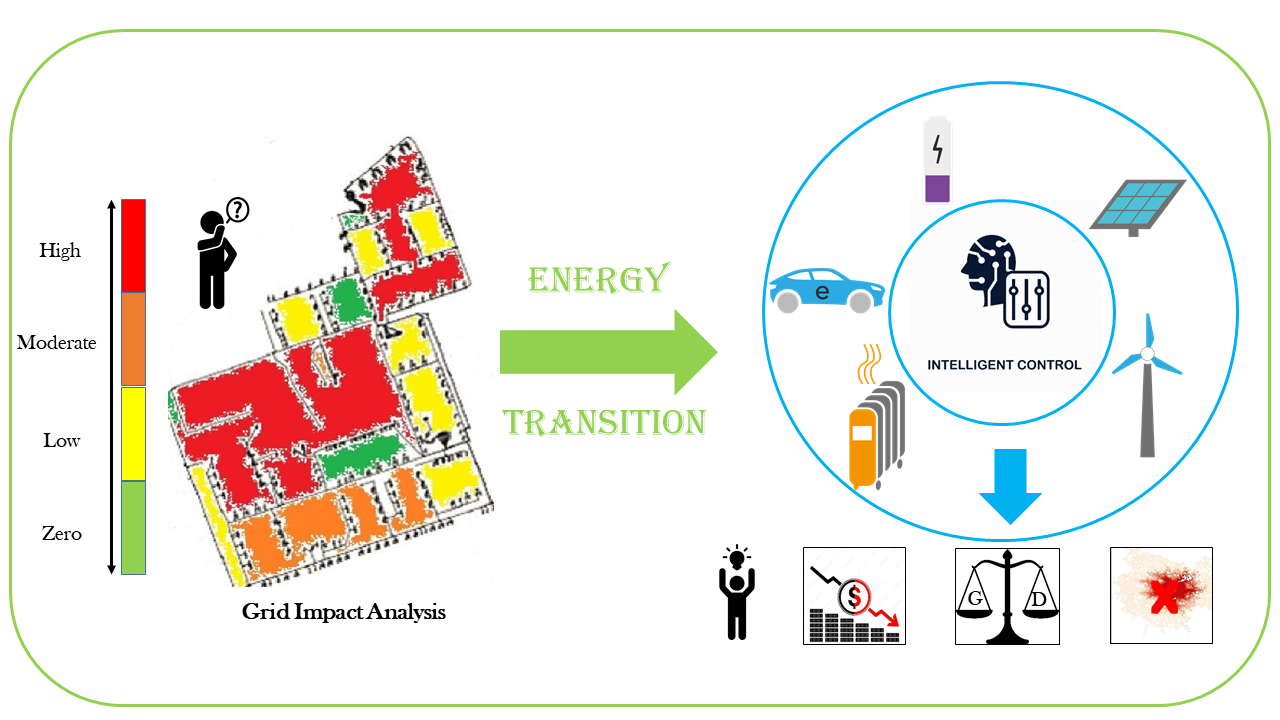Coordinated Power Control on future Sustainable DC Power Grid

Project description
Due to the ever-growing environmental impact and depletion of fossil fuels, global and european target goals lead society towards a more and more sustainable world with reduced environmental footprint and CO2 emissions. Electrification of heating and transportation as well as sustainable (electric) energy supply are cornerstones of the success of the global energy transition and world decarbonization. In this regard, Photovoltaics (PVs) on the supply side as well as Heat Pumps (HPs) and Electric Vehicles (EVs) on the demand size, are three of the most emerging technologies for the achievement of the aforementioned goals, called as “Low-Carbon Technologies” or LCTs. However, while LCTs can be the key of the successful energy transition, they do not come without the side effect of major grid impact, such as increased power demands and congestions in the power grid. On the contrary, if LCTs are not integrated in the grid uncontrollably but together with Energy Storage Systems within an Energy Management System, they are able to reduce the grid impact, provide ancillary services and increase cost savings with the use of their flexibility.
Moreover, another major currently ongoing transition in the power grid is the return of the DC systems, due to the massive deployment of Power Electronics and the inherent DC character of most RES and loads, such as PV systems, most Energy Storage systems (ESSs), fuel cells and hydrogen technology, EVs, LEDs and most home electric appliances. Therefore current EMS works should not ignore the influence of the DC penetration in the physical layer of the distribution grids in order to extract valid and realistic results, considering the management of the grid impact in the future sustainable DC power grid.
The Ph.D project is supervised by the daily supervisor Dr. Ir. Gautham R.C. Mouli, and the promotor Prof Dr. Eng. Pavol Bauer. It is part of the NEON project and belongs to the "Energy Transport" work package. NEON is an ongoing research project funded by the Dutch Research Council (NWO). NEON addresses three interrelated societal challenges: climate action, renewable energy, and intelligent green transport. The main target of NEON is to aid the Netherlands in achieving the goal of keeping global warming below 2℃ relative to preindustrial levels, as pledged in the “Paris Agreement” by 197 different nations on December 2015.
Objectives:
Therefore, regarding the current world challenges, described above, this PhD research is divided into three parts, whose objectives are summarized below:
- Investigate grid impact of future LCTs penetrations:
- Investigate grid impact issues induced in the different distributional areas by combined increasing penetrations of electrified mobility, heating and distributed generation
- Identify mostly affected distributional area and “heavier” LCT
- Investigate grid imbalance impact
- Manage grid impact with Coordinated Control of “Smart” loads and Energy Storage:
- Minimize over-stressing of components and voltage deviations issues in distribution grids with use of “smart” loads flexibility and energy storage
- Utilize “smart” loads and energy storage in order to provide ancillary services to system operator and increase cost savings?
- Investigate optimal trade-offs of Energy Storage and “smart” loads as well as distributed and shared units for congestion management
- Investigate importance of seasonal storage
- Investigate impact of DC transition on Coordinated Control
- Study relation of physical behavior of AC and DC components with Coordinated Control layer
- Study optimal location of AC and DC components in in hybrid AC and DC Distribution grids with respect to congestion management and optimal cost savings
- Investigate control on distribution grids with different DC penetrations